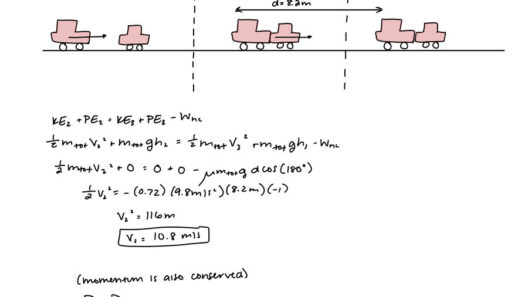In the pursuit of achieving overall well-being, one often overlooks the profound connection between energy conservation within our bodies and the health of our environment. Conserving energy isn’t solely an external endeavor; it’s an internal one as well. Our bodies, much like the planet, expend energy continuously and require sustainable practices to optimize functioning. This essay explores science-backed wellness tips aimed at conserving energy in our bodies while enhancing health.
The concept of energy conservation within the body is often associated with metabolic processes, stress levels, and lifestyle choices. Herein lies an intriguing observation: many individuals ignore the importance of conserving personal energy amidst the societal pressures of productivity and multitasking. This oversight might stem from a deeper fascination with busyness and the incessant need to achieve, yet such a mindset undermines our physiological systems. Energy conservation requires a delicate balance; it cultivates a state of homeostasis, which is critical for longevity and vitality.
Understanding Metabolism
Metabolism is the biochemical process by which our bodies convert food into energy. This process is fundamental, as it governs every cellular function. An efficient metabolism ensures that energy is not wasted. To enhance metabolic efficiency, individuals can adopt practices such as incorporating nutrient-dense foods, engaging in regular physical activity, and ensuring adequate hydration. Each of these elements plays a pivotal role in how energy is utilized.
Nutrient-dense foods—such as lean proteins, whole grains, fruits, and vegetables—provide essential vitamins and minerals which facilitate metabolic processes. Engaging in regular physical activities not only boosts energy levels but also optimizes metabolic rate, leading to enhanced energy conservation at rest. Hydration is equally crucial; water acts as a solvent for biochemical reactions and aids in nutrient transportation. A well-hydrated body is far more adept at conserving and utilizing energy effectively.
Stress Management Techniques
Another significant factor influencing energy conservation is stress. Chronic stress can lead to adrenal fatigue—a condition where the adrenal glands become overworked and struggle to produce adequate hormones such as cortisol. This hormonal imbalance depletes energy levels significantly. Integrating stress management techniques into daily routines is essential for maintaining energy conservation.
Mindfulness meditation, yoga, and deep-breathing exercises can all reduce stress levels effectively. These practices enhance the mind-body connection, allowing individuals to prioritize relaxation and mental clarity. Furthermore, incorporating periods of rest throughout the day can prevent burnout, ultimately preserving physical and mental energy reserves. Authoritative studies suggest that short, concentrated bouts of work followed by breaks yield substantial productivity while conserving overall energy levels.
The Role of Sleep
Sleep is another critical component of energy management. During sleep, the body undergoes restorative processes crucial for energy conservation. The National Sleep Foundation recommends that adults aim for 7-9 hours of sleep per night. Inadequate sleep is often accompanied by increased fatigue and diminished cognitive function, which can lead to a cyclical pattern of energy depletion.
Crafting a conducive sleep environment proves beneficial. This includes maintaining a cool room temperature, limiting screen time before bed, and developing a consistent sleep schedule. These strategies enhance sleep quality, promoting restorative sleep cycles that are vital for effective energy conservation.
Physical Activity Choices
While engaging in exercise is essential for health, the type and intensity of physical activity can affect energy levels. High-intensity workouts burn energy quickly, which can lead to greater fatigue if not balanced with adequate rest. Conversely, moderate-intensity exercise, such as walking or cycling, can enhance energy levels without exhausting the body. This strategy allows for energy conservation while still reaping the benefits of physical activity.
Incorporating non-exercise activities into daily routines also conserves energy. Simple activities, like gardening or household chores, provide movement without the overwhelming strain of formal exercise, allowing for sustainable energy expenditure while improving physical fitness.
Mindful Consumption
Taking an intentional approach to food consumption can significantly affect energy conservation as well. Being conscious of eating practices—such as portion control, pacing meals, and choosing whole foods over processed options—can prevent energy dips that occur from blood sugar fluctuations. Eating smaller, balanced meals throughout the day supports steady blood sugar levels, enabling the body to sustain energy output effectively.
Moreover, avoiding excessive caffeine and sugar consumption can mitigate energy crashes. While these substances may provide a temporary boost, they often lead to rapid declines in energy, perpetuating a cycle of dependency and depletion.
Connecting with Nature
Lastly, fostering a connection with nature can bolster both mental well-being and energy conservation. Nature exposure has been scientifically linked to reductions in stress, anxiety, and fatigue. Engaging in outdoor activities can stimulate the mind and spirit, enhancing overall vitality. Furthermore, green spaces have restorative effects that boost attentional capacity and improve mood, contributing to better energy management.
In conclusion, conserving energy within the body is essential for optimizing health and enhancing our daily lives. By adopting nutrient-dense diets, reducing stress, prioritizing quality sleep, engaging in appropriate physical activities, mindful eating, and cultivating connections with nature, individuals can effectively manage their energy levels. Ultimately, a comprehensive approach to energy conservation not only promotes personal wellness but aligns with a more sustainable vision for living harmoniously with our environment.








